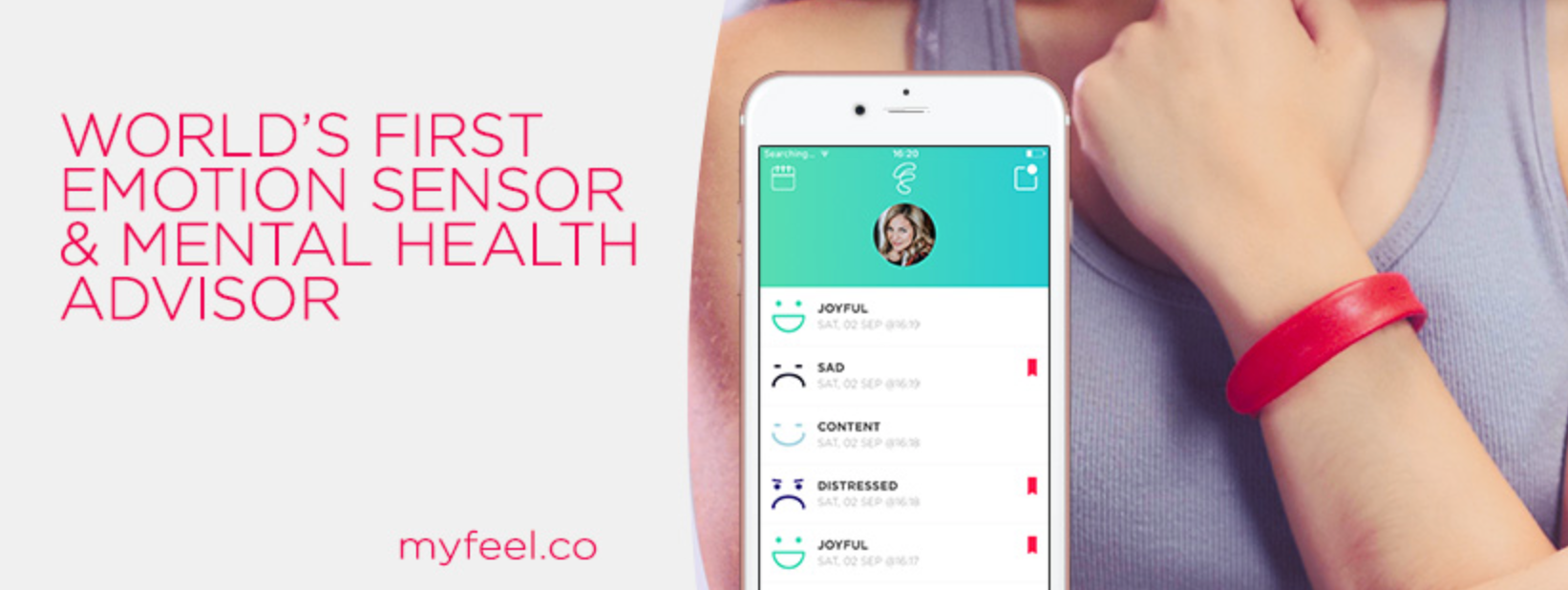Topics:
Sentio Solutions
Nowadays digital health solutions are increasingly becoming an integral part of our daily wellbeing routine – from simple healthy lifestyle guides to sophisticated chronic disease management tools. However, for me it wasn’t until I met George Eleftheriou and Haris Tsirmpas from Sentio Solutions that I came across a value proposition than tackles mental wellbeing in such a unique and, in my view, revolutionary way.
At Anthemis Exponential Ventures (AEV) we’ve spent the past couple of years talking about prevention vs. mitigation where finance, health and insurance intersect. Putting our money where our mouth is, we’ve been betting on data-driven positive behaviour modification as the first step towards timely intervention and ultimately prevention. After all, a stitch in time saves nine. The trouble is human nature, and the irrationality that characterises us. We procrastinate (why get that check-up now when you can get it later?), feel invincible (especially when younger, bad things only happen to other people) and ignore our better judgement (denial is a known evil). It is evident we need help!

Through their first product, Feel, Sentio are tackling an extremely complex problem: that of accurate emotion detection and identification, on a continuous basis. Prima facie, the solution is quite simple: you just wear the Feel bracelet and your emotions are tracked and recorded into the app. The complexity lies within the Sentio algorithms that are able to learn and detect emotional patterns unique to you, utilizing over 200 biomarkers from 6 sensors, and translating those into contextual, real-time CBT-based support.
I repeat, because this still amazes me: Feel is an affordable, wearable solution that can accurately detect and identify emotions in real-time, around the clock. So, let’s deconstruct this a little bit…
Firstly, to date we don’t have any objective data related to mental wellbeing. This could only be done at a university lab with EEG-like large and expensive equipment, or at the office of a therapist, relying on one’s ability to correctly identify and describe one’s own emotions – an endeavour which is surprisingly difficult as it requires mountains of self-awareness and, if nothing else, takes a lot of (costly) time.
Secondly, the ability to monitor emotions on a continuous basis increases the effectiveness of intervention (based on CBT principles) because it is immediate, right at the start of the emotional build-up rather than after the fact.
The economic impact of mental health disorders is staggering. Depression treatment alone costs the US economy $210 billion per year and over $1 trillion globally.[1] In fact, for every dollar spent treating depression, an additional $4.70 is spent on the direct and indirect costs of related illnesses2, placing a strain on healthcare providers and insurers alike.[2]
Moreover, according to the WHO, 322 million people suffer from depression globally and one in five of us will experience a mental health problem in our life. For many, that equates to someone in our immediate family – a sobering perspective.
As a preventative and lifestyle tool, Feel can help the ‘one in five’ of us detect early warning signs of deteriorating mental health and intervene before ever needing therapy. In the age of self-help books, mindfulness applications and more openness around mental health, the timing is right for technology to support the shifting narrative from simply triaging mental illness (with all the negative, taboo connotations this entails) to building and maintaining good mental health (it’s cool to be happy, mindful and zen!)
Beyond the obvious applications in the field of clinical psychology, I believe Sentio will make a lasting impact on overall medicine and by extension pharmacology and insurance. The use cases that come to mind are numerous, from stress management in cardiovascular disease, to treatment of comorbid mental health conditions following chronic disease or disability, to measurement of drug impact on mental health in clinical trials, with obvious yet currently immeasurable possible gains to these spaces. Not to mention the potential to improve every person’s everyday life.
With George and Haris at the helm of Sentio, two exceptional scientists and insightful strategic thinkers with never-ending passion, kindness and humility, and the strong team they’ve built across San Francisco, Shenzhen and Athens, I am certain that Sentio will leave a lasting mark in the space of mental health and insurance. Feel has the potential to help millions of people – including insureds, insurers and employers – and prove once again the effect of mental health on all facets of our lives, from the realm of physical health to that of finance.
We are delighted to join SOSV and Make in LA as institutional backers of Sentio Solutions, and look forward to supporting the company on their journey to help improve quality of life for those suffering from mental health conditions.
Thanks to my colleagues on the AEV team (Tee Pruitt, Dan Smith and Alex Mayall) for their work on this and a special thanks to our former colleague Carlo Biggio who made valuable contributions to our investment.
